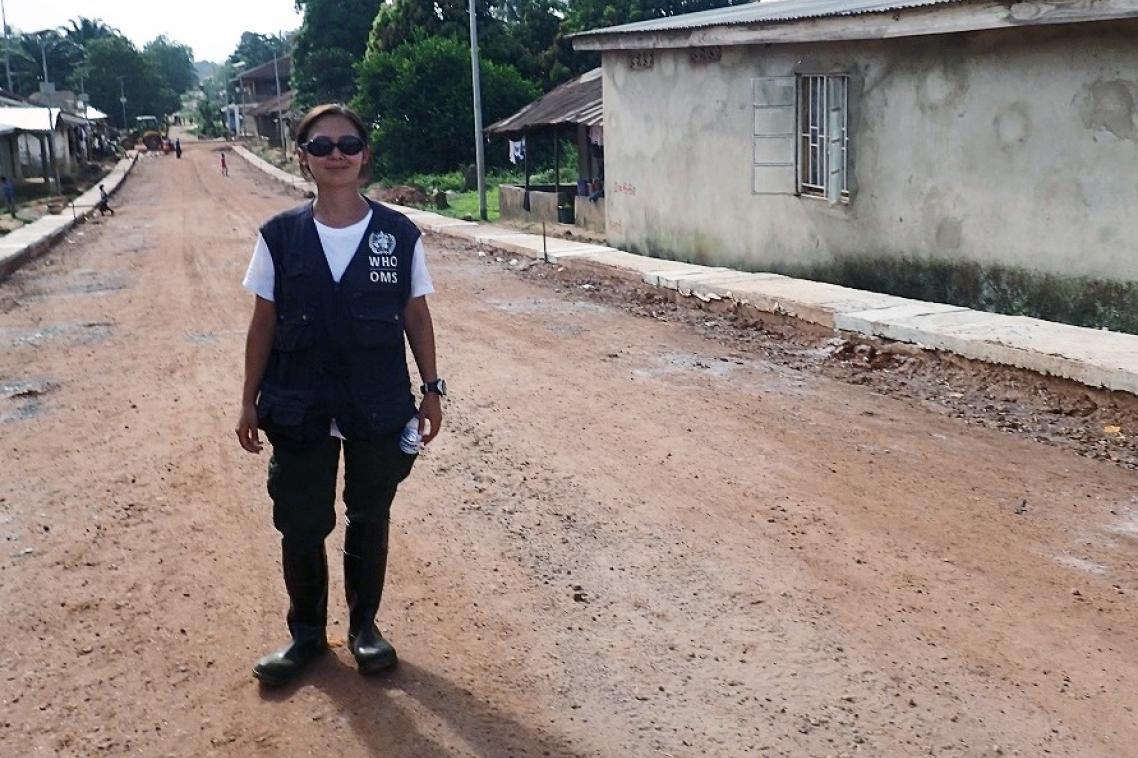UQ study offers new data tool-kit for Ebola outbreak zones

A new study shows flawed data management practises may have contributed to the magnitude of the 2014 Ebola virus disease outbreak in Sierra Leone.
University of Queensland and World Health Organisation (WHO) researchers have released a report which recommends the development of a new tool kit to efficiently manage data during future epidemics.
School of Medicine PhD candidate Kei Owada took a two-month interruption to her studies to undertake an assignment for WHO in Sierra Leone during the outbreak, helping to assess procedures for recording and tracking cases and suspected infections.
“This report is the first in-depth analysis from the frontline confirming that incomplete and inconsistent data led to limitations when it came to measuring critical indicators,” Ms Owada said.
“While a total of 8,704 cases were confirmed and more than 3,589 deaths were reported, the limitations affected indicators such as fatality and incident rates so these figures would be an underestimation.”
Ms Owada said case investigation forms were the most crucial source of information to capture accurate information in the field.
“We observed that these forms were often not filled out correctly and burials could not be accurately quantified in some areas,” she said.
While there had been some access to data-management software in the field, Ms Owada said basic functions such as recognising duplicate entries and exporting localised lists had not been possible.
“We are proposing the development of a new tool kit to ensure timely outbreak detection and an efficient response in the future,” she said.
“This is the real message from this report for those authorities who respond to these situations.
“If local health ministries and governments want to improve their disease outbreak response they need to invest in new software applications.”
Ms Owada and her colleagues also noted better training, data management plans, meetings and data quality audits could be implemented to ensure better outcomes not just in Ebola virus disease affected areas, but any outbreak zone.
The report is published in Frontiers in Public Health.
Media: Kei Owada, k.owada@uq.edu.au ; Bernadette O’Connor, Faculty of Medicine, bernadette.oconnor@uq.edu.au, +61 7 3365 5118, 0431 533 209.
Topics
Related articles

New ultrasound imaging to map drug delivery into the brain

Staying physically active cuts risk of early death by 40 per cent
Media contact
UQ Communications
communications@uq.edu.au
+61 429 056 139
